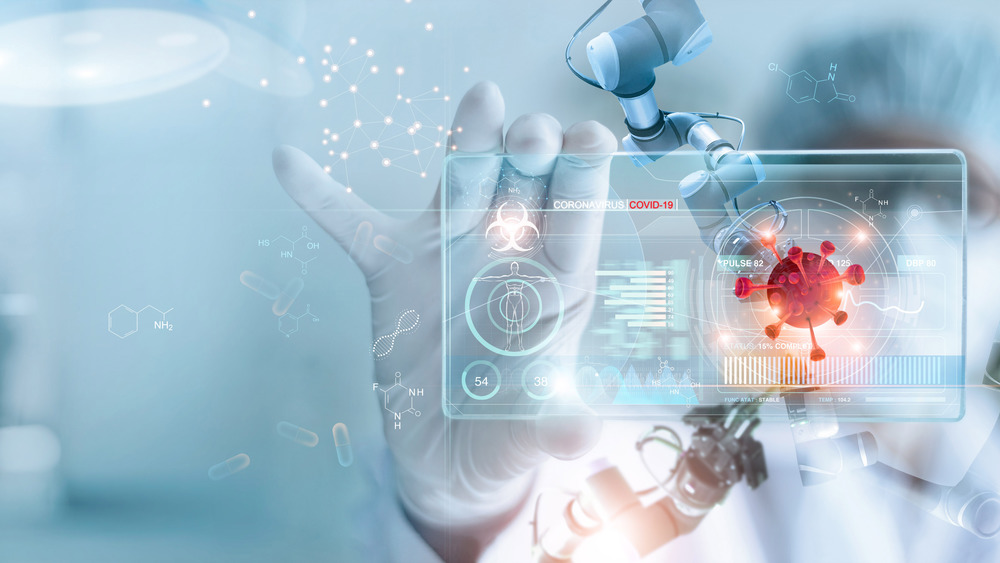New Science Suggests Why Some COVID-19 Patients Become Sicker Than Others
Genetics and gender may determine both your risk of contracting COVID-19 and how sick you'll become, according to two new studies researching genes and the body's immune system (via NBC News).
Both studies, published in Science, involve the COVID Human Genetic Effort, which includes 200 research centers in 40 countries. The consortium on its website says it aims to discover any genetic factors in patients with severe forms of the coronavirus, as well as any genetic variations that make certain people resistant to infection.
In one study, these researchers found that 10 percent of nearly 1,000 COVID-19 patients who had developed life-threatening pneumonia also had antibodies that disabled important proteins called interferons, which are a key part of the immune system.
Interferons should serve as the body's first line of defense against infection, activating virus-fighting genes, explained virologist Angela Rasmussen, an associate research scientist at the Center for Infection and Immunity at Columbia University's Mailman School of Public Health. But because of these particular antibodies, that defense doesn't always deploy. Scientists call antibodies that interfere with the body's defenses "autoantibodies" because they attack the body.
In addition, there is a difference between the sexes as well — 12.5 percent of men with life-threatening COVID-19 pneumonia had autoantibodies against interferon, compared with 2.6 percent of women.
COVID-19 inhibits the immune system in some patients
A previous study in August found that interferons were suppressed in some people with COVID-19, perhaps by the virus itself (via the National Institutes of Health). This new research indicates that genetics also could play a role. A second study found that an additional 3.5 percent of critically ill patients had mutations in their genes that typically would control interferons.
Interferons are particularly important for protecting the body against new viruses, said study author Qian Zhang, a researcher at Rockefeller University's St. Giles Laboratory of Human Genetics of Infectious Diseases in New York City. If you're infected with the novel coronavirus, "your body should have alarms ringing everywhere," Zhang told NBC News. "If you don't get the alarm out, you could have viruses everywhere in large numbers."
The human body has about 500 to 600 genes that control interferons, so researchers anticipate finding more genetic mutations, Zhang told NBC News.
COVID-19 isn't the only condition to trigger autoantibodies. In autoimmune disease, the immune system becomes confused and creates them, causing diseases such as Type 1 diabetes, where the immune system attacks insulin-producing cells in the pancreas, and rheumatoid arthritis, where antibodies attack the joints. Doctors don't know the exact causes of autoimmune disease but have observed that they often occur after viral infections and as people age.

